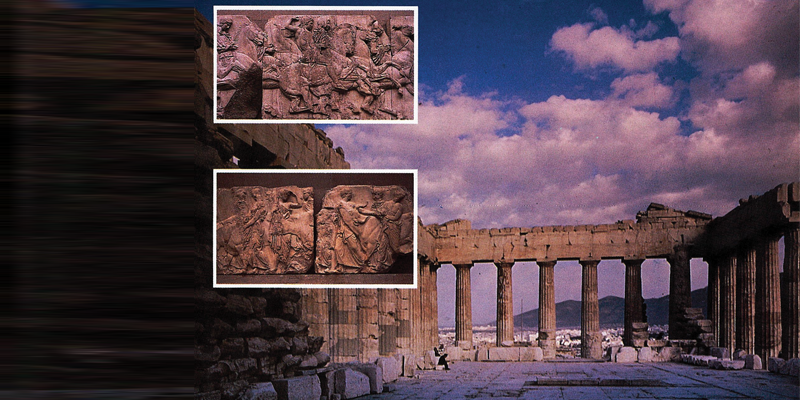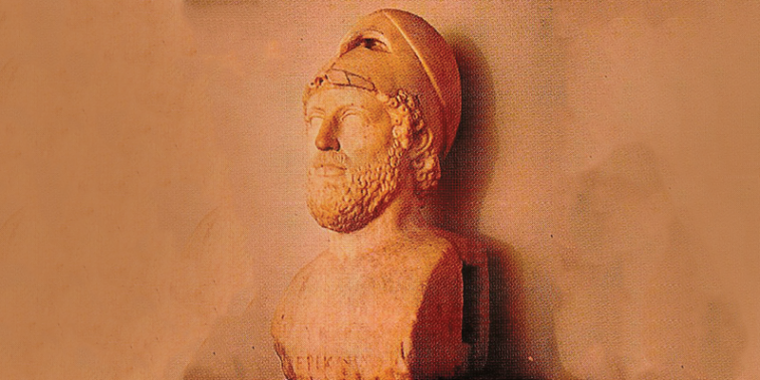
We all think that management is a twentieth-century, newly invented skill, but its roots go back thousands of years and essential to learn that we cannot deal with today's problems without understanding yesterday's.
The following article by John K Clemens appeared in Fortune magazine on October 11, 1986 was reprinted in BCC inhouse magazine in January, 1987 issue.
The idea that corporate culture can help you win dates back to ancient Greece. And it's still true.
Unless you've been off exploring Antarctica the past couple of years, you are well aware that managers are spending a great deal of time these days pondering corporate culture. Among management fads and fashions, this one is way out front Nearly every high executive is rushing to identify, nurture and extol his or her organisation's culture. What you may not know is that corporate culture has demonstrably more staying power than most trendy ideas. In fact, it has been around for more than 2,000 years. Corporate culture was dreamed up not by some management guru but by Pericles, the father of Athens' Golden Age. (Athens, the capital of Greece)
The idea had its genesis in a speech Pericles made at the funeral of Athenian soldiers in 431 B.C. (He was a prominent and influential Greek statesman, orator and general of Athens during its golden age). He used the opportunity to sketch a picture of his ideal society, much as Lincoln did at Gettysburg 2,300 years later. Pericles' funeral oration is one of history's most powerful statements of the shared values and beliefs of an organisation - its culture. It had to be good. Athens was at war with Sparta (a prominent city-state in ancient Greece), and Pericles knew that survival might depend on his ability to coalesce his people into a unified team.
He had already brought Athenian democracy to its zenith by making Athens the strongest of the Greek city-states. He also left an invaluable lesson for modem managers. He demonstrated that establishing a strong corporate culture required two things. First, a leader must determine what makes his organisation different; then he must eloquently communicate those differences to the organisation's members.
Pericles focused on four characteristics that made Athens unique. He first exalted the openness of Athenian life, its democratic style, and its optimistic estimate of man's potential. He made it clear that membership in the Athenian organisation was supremely valuable, and he underscored the primacy of individual dignity and promotion based on merit " ... when it is a question of putting one person before another in positions of public responsibility, what counts is not membership of a particular class, but the actual ability which a man possesses."
Then, in words strikingly suggestive of the "work hard, play hard" corporate cultures in vogue today, Pericles emphasised the importance of having fun: ''When work is over we are in a position to enjoy all kinds of recreation for our spirits. There are various kinds of contests and sacrifices regularly throughout the year ... " With few modifications (sacrifices are frowned on nowadays), this sentiment could apply to IBM (which exalts its top salespeople at Caribbean "revivals"), Tandem Computers (famous for its weekly beer busts), or Mary Kay Cosmetics (whose multimillion dollar confabs are called seminars).
Pericles next reminded his listeners that Athens was an opinion leader, an innovator. She did not emulate her competitors. Indeed, she set the standard that others followed. Athens, he said, "does not copy the institutions of our neighbours. It is more a case of our being a model to others than our imitating anyone else."
Finally, Pericles emphasised that the individual is the organisation: "Here each individual is interested not only in his own affairs but in the affairs of state as well. Even those who are mostly occupied with their own businesses are extremely well informed on general politics. This is a peculiarity of ours: We do not say that a man who takes no interest in politics is a man who minds his own business; we say that he has no business here at all."

That description of Athenian culture is echoed in this 20th century declaration of corporate values and beliefs: "Our approach is informal and nonbureaucratic . . . people are accessible at all levels . . . people also have fun working here .. . there is laughing in the hall, as well as serious discussion ... people feel like they are on the winning side . . . the individual is the key .... " More than 2,400 years after the funeral oration, that statement to employees serves a similar purpose at Cray Research, a leading designer and manufacturer of supercomputers.
At General Motors, chairman Roger B. Smith is doing for corporate culture what one of his predecessors, Alfred P. Sloan, did for decentralisation. With the exuberance of a true believer, Smith is blending organisations as disparate as Hughes Aircraft and Electronic Data Systems into the GM fold. His goal? To transform GM's antediluvian culture by forcing the Detroit "old guard" to rub shoulders with the "techies" from California and Texas. To make sure everyone gets the message, Smith hands out pocket-size "culture cards" enunciating the new sense of mission in 44 carefully chosen words: "The fundamental purpose of General Motors is to provide products and services of such quality that our customers will receive superior value, our employees and business partners will share in our success, and our stockholders will receive a sustained, superior return on their investment."
The executives at Cray Research and General Motors know, like Pericles, that it is not enough to identify an organisation's uniqueness. They also have to communicate its unique characteristics effectively to employees. Whether ancient Athenians threatened by Spartan assault, modem automakers tormented by the Japanese, or computer designers trying to capture the next leading edge technology, people need to be reminded of what their organisations stand for and what makes them worth fighting for.
Smart executives are becoming as concerned about their organisation's culture as they are about next quarter's earnings. The reason is simple: they realise it affects the bottom line. Modern executives owe a debt to the man who discovered that culture could be a powerful management tool. Pericles demonstrated that a leader must articulate the organisation’s ideology and remind its members, whether citizens or employees, of the kind of people they are and - more important - of what they are to become.
Related Topics
Pericles’ Funeral Oration 431 B.C.
In the speech Pericles relates the special qualities of the Athenians, redefining many traditional Greek virtues in a radical new light.
The idea that the Athenians are able to put aside their petty wants and strive for the greater good of the city is a central theme of the speech. Bound together by bonds of mutual trust and a shared desire for freedom, the people of Athens submit to the laws and obey the public officials not because they have to, as in other cities, but because they want to. Athenians had thus achieved something quite unique - being both ruled and rulers at one and the same time. This had forged a unique type of citizen. Clever, tolerant, and open minded, Athenians were able to adapt to any situation and rise to any challenge. They had become the new ideal of the Greek world.
Full text of Pericles’ speech https://sourcebooks.fordham.edu/ancient/pericles-funeralspeech.asp
BOOK REVIEW
The Classic Touch - Leadership Lessons from Homer to Hemmingway
John K Clemens and Douglas F Mayer
"A Classic way to solve business problems." - U.S. News & World Report
In Homer's day, a hostile takeover meant blood and arrows, not mergers and layoffs. (Homer is the presumed author of the Iliad and the Odyssey, two hugely influential epic poems of ancient Greece. If he did in fact compose the works, he is one of the greatest literary artists in the world, and, through these poems, he affected Western standards and ideas.) However, The Iliad is still a valuable guide for steering the right course in today's tricky business world. Shakespeare's King Lear has more to say about succession, delegation, and decentralization than do most management texts. And Thoreau's "Walden" offers astute observations on what can happen when an organization gets too big. Captivating and instructive, this book is the first to tap the collective wisdom found in the classic works of Western literature and apply it to the problems of modern managers and leaders. Drawing on sources that range from Homer's time to Arthur Miller's, this treasure trove of passages and stories offers invaluable advice for solving today's most difficult business dilemmas. It addresses such issues as building a team and keeping it together, managing an acquisition once it's in place, eliminating daily distractions, and trusting your intuition.
John K. Clemens, in addition to being a professor of management at Hartwick College, Oneonto, NewYork, USA, was the founder and executive director of the Hartwick Humanities in Management Institute, an organisation that conducts leadership seminars for emerging leaders in Fortune 500 companies. He was co-author with Douglas Mayer of The Classic Touch - Leadership Lessons from Homer to Hemmingway which offers a rich understanding of the art of leading. Douglas F. Mayer was the former chairman of the economics and management department at Hartwick College. He is the coauthor of Shakespeare and Management - Othello, Macbeth, and Lear: Lessons About Behavior in Organizations.
Fortune is an American multinational business magazine headquartered in New York, USA. The publication was founded in 1929 as "the Ideal Super-Class Magazine", a "distinguished and de luxe" publication "vividly portraying, interpreting and recording the Industrial Civilization. It is now published by Fortune Media Group Holdings, owned by a Thai businessman . The magazine competes with Forbes and Bloomberg Businessweek in the national business magazine category and distinguishes itself with long, in-depth feature articles. The magazine regularly publishes ranked lists, including the Fortune 500, a ranking of companies by revenue.